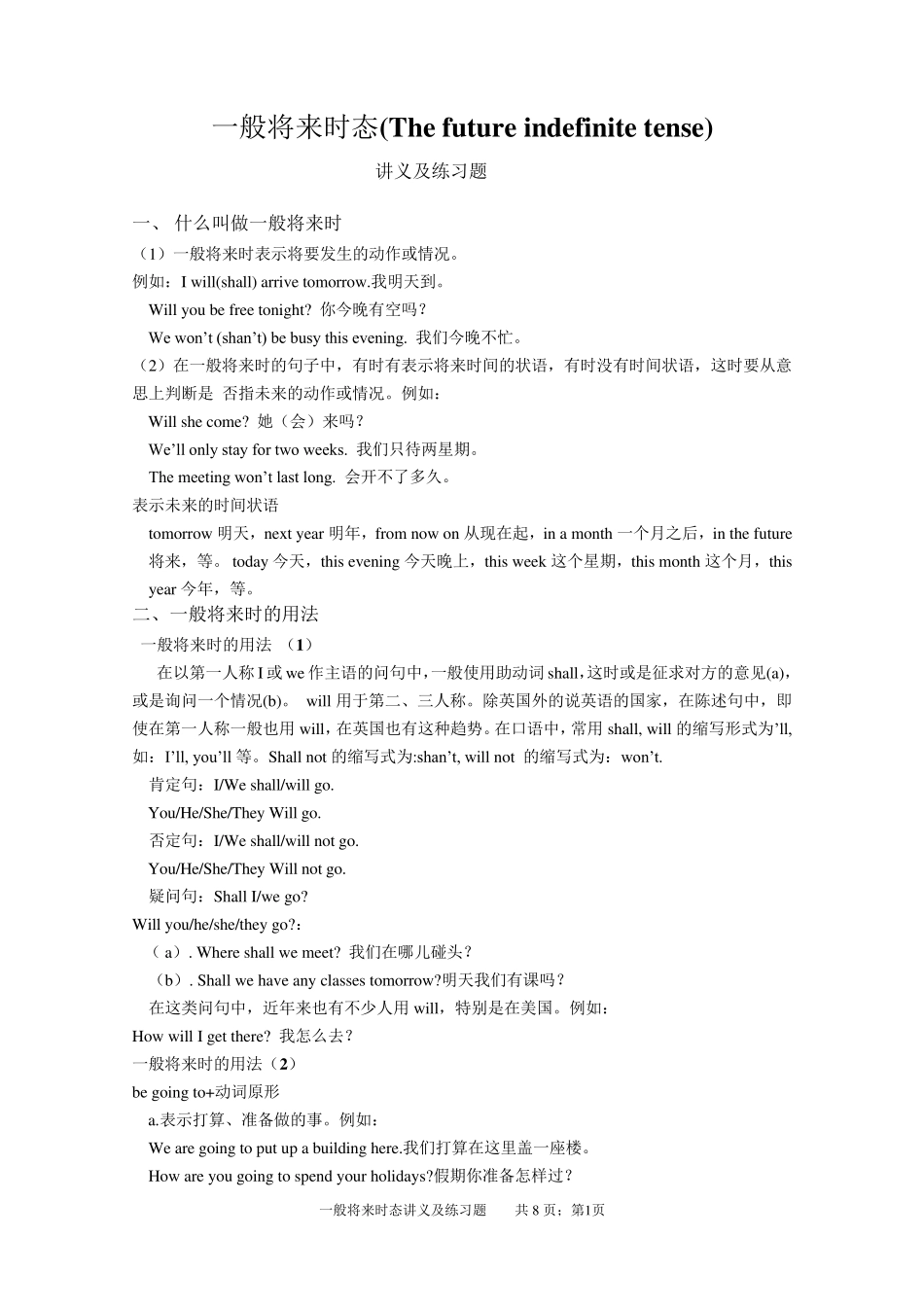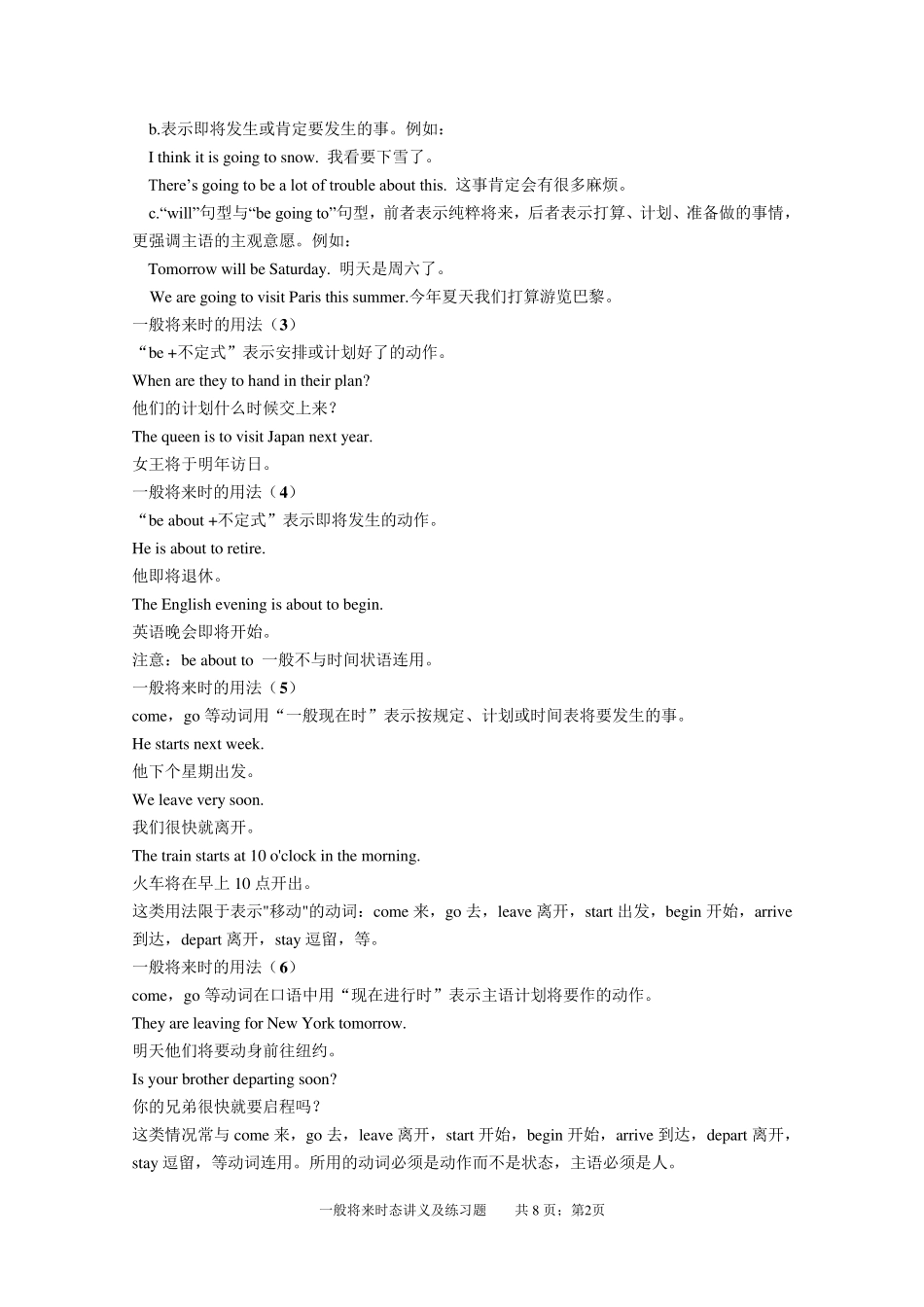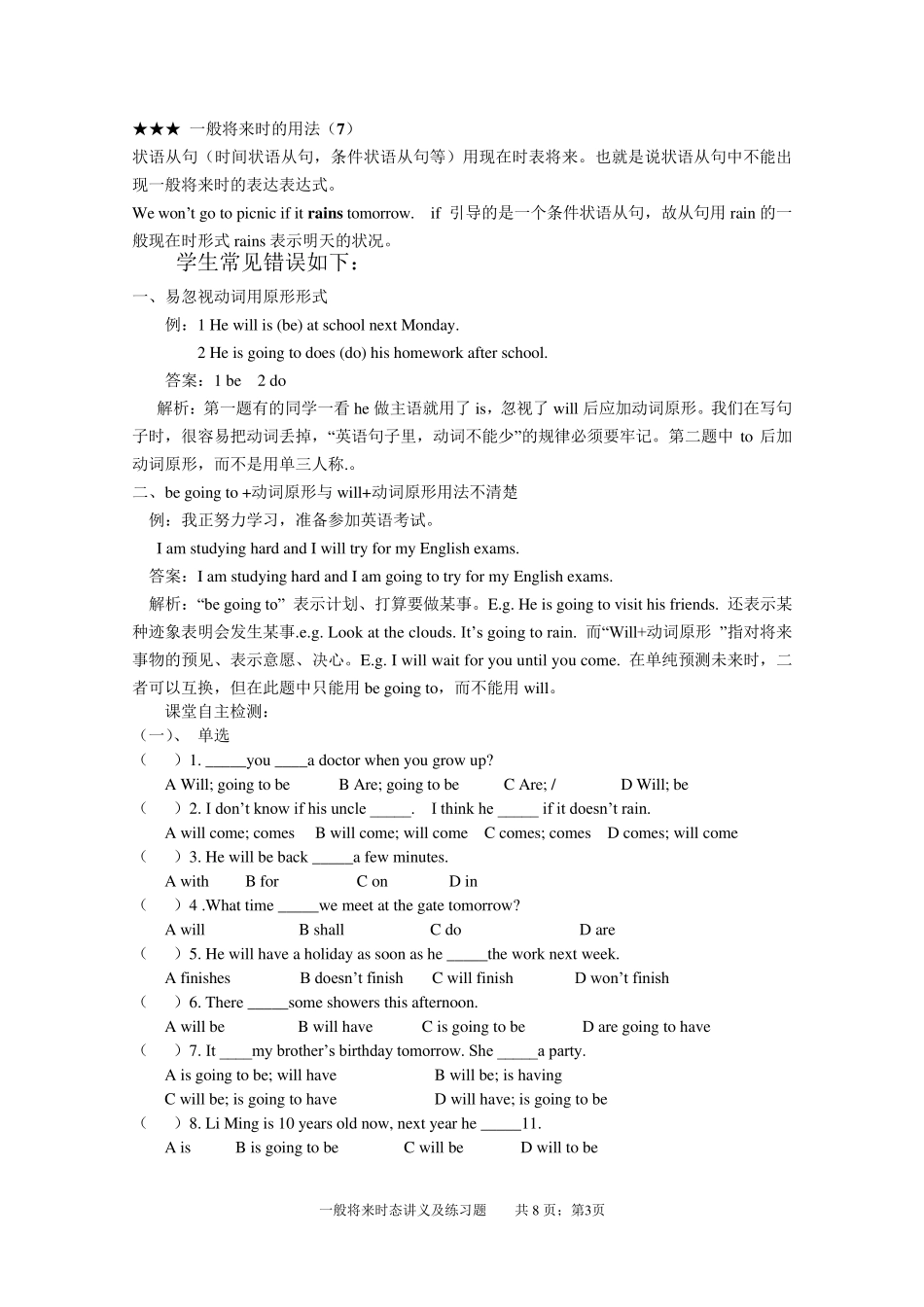一般将来时态讲义及练习题 共8 页;第1页 一般将来时态(The fu tu re indefinite tense) 讲义及练习题 一、 什么叫做一般将来时 (1)一般将来时表示将要发生的动作或情况。 例如:I will(shall) arrive tomorrow.我明天到。 Will you be free tonight? 你今晚有空吗? We won’t (shan’t) be busy this evening. 我们今晚不忙。 (2)在一般将来时的句子中,有时有表示将来时间的状语,有时没有时间状语,这时要从意思上判断是 否指未来的动作或情况。例如: Will she come? 她(会)来吗? We’ll only stay for two weeks. 我们只待两星期。 The meeting won’t last long. 会开不了多久。 表示未来的时间状语 tomorrow 明天,next year 明年,from now on 从现在起,in a month 一个月之后,in the future将来,等。 today今天,this evening 今天晚上,this week 这个星期,this month 这个月,this year 今年,等。 二、一般将来时的用法 一般将来时的用法 (1) 在以第一人称 I 或 we 作主语的问句中,一般使用助动词 shall,这时或是征求对方的意见(a),或是询问一个情况(b)。 will 用于第二、三人称。除英国外的说英语的国家,在陈述句中,即使在第一人称一般也用 will,在英国也有这种趋势。在口语中,常用 shall, will 的缩写形式为’ll, 如:I’ll, you’ll 等。Shall not 的缩写式为:shan’t, will not 的缩写式为:won’t. 肯定句:I/We shall/will go. You/He/She/They Will go. 否定句:I/We shall/will not go. You/He/She/They Will not go. 疑问句:Shall I/we go? Will you/he/she/they go?: ( a). Where shall we meet? 我们在哪儿碰头? (b). Shall we have any classes tomorrow?明天我们有课吗? 在这类问句中,近年来也有不少人用 will,特别是在美国。例如: How will I get there? 我怎么去? 一般将来时的用法(2) be going to+动词原形 a.表示打算、准备做的事。例如: We are going to put up a building here.我们打算在这里盖一座楼。 How are you going to spend your holidays?假期你准备怎样过? 一般将来时态讲义及练习题 共8 页;第2页 b.表示即将发生或肯定要发生的事。例如: I think it is going to snow. 我看要下...


